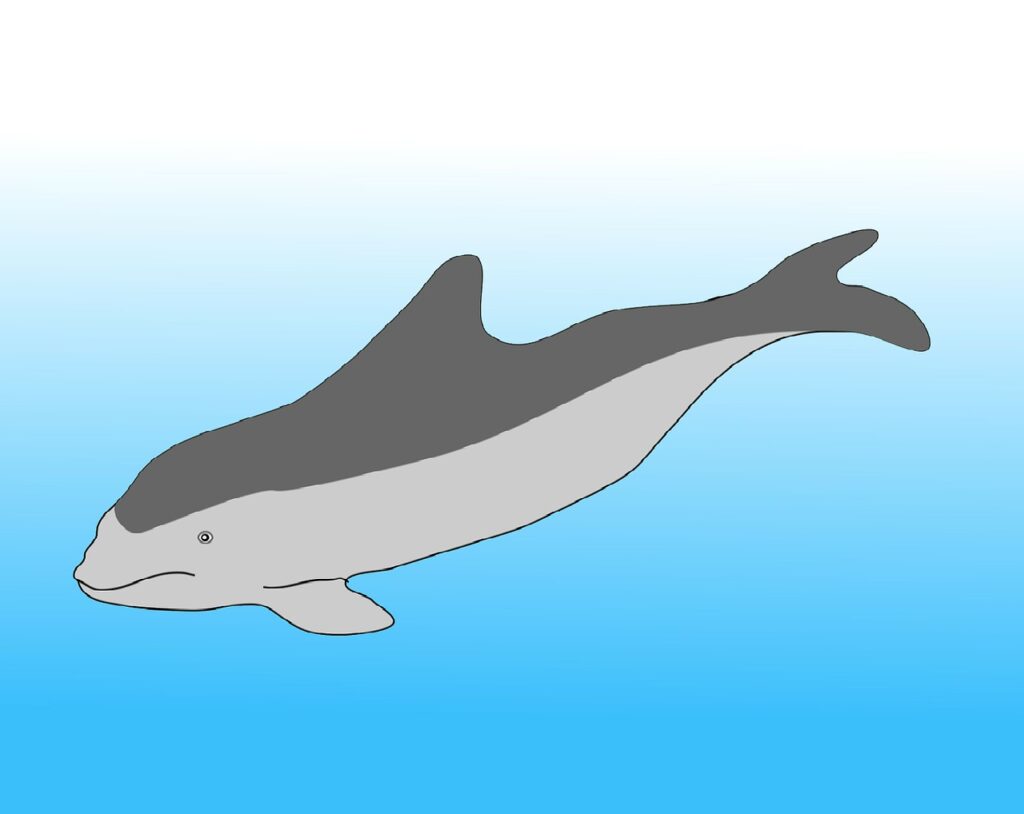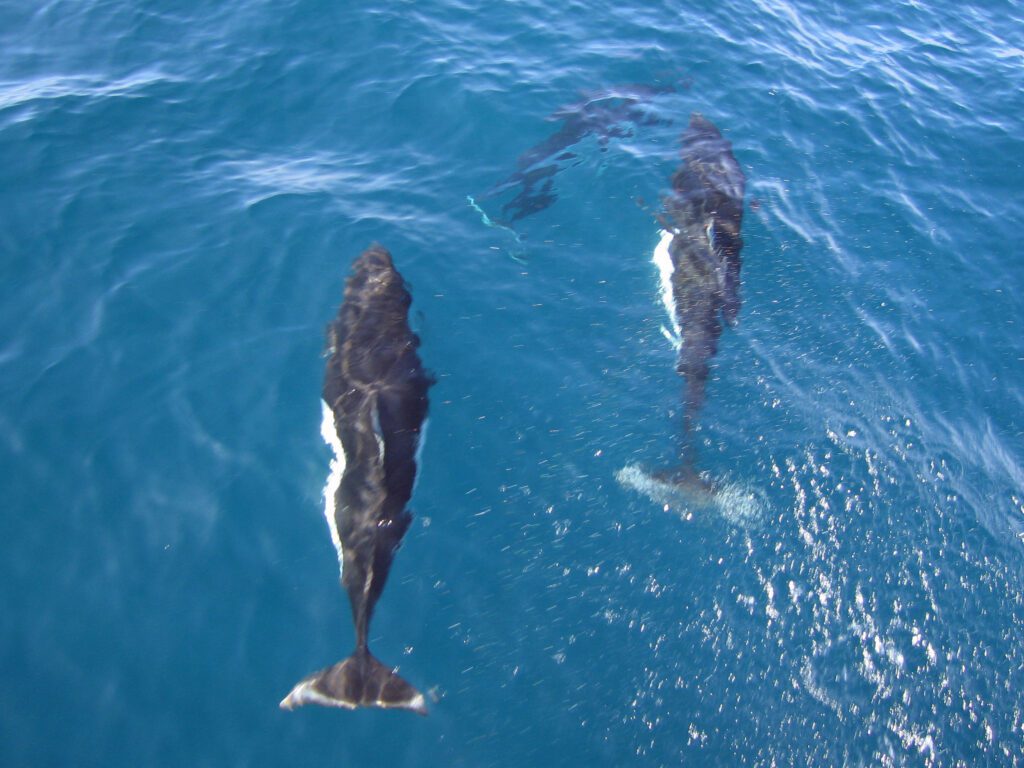Porpoises are captivating! They’ve long piqued humans’ curiosity. Are these sea mammals truly friendly? Let us explore their behavior.
They’re known for their playfulness and sociability. People have seen them swim alongside boats and approach divers with curiosity. It hints at a friendly nature.
But, remember: they’re still wild animals. They have survival instincts. Treat them with respect and don’t disturb or harass them.
Here’s how to foster a positive interaction:
- Keep a respectful distance. Don’t stress or scare them. Observe them from afar to let them feel safe in their environment.
- Don’t feed them. It disrupts their natural hunting instincts and makes them dependent on humans for food.
Finally, spread awareness about responsible wildlife tourism. Teach people about conservation and help them make informed choices.
Key Takeaways
- Porpoises are generally friendly and curious creatures.
- They are known to approach boats and interact with humans.
- Porpoises may exhibit playful behavior, such as leaping out of the water or riding the bow waves of boats.
- It is important to respect porpoises’ space and not disturb or harm them.
- Porpoises can be a great source of joy and fascination for those lucky enough to encounter them in the wild.
Background information on porpoises

Porpoises are captivating animals that inhabit various oceans worldwide. They’re small toothed whales who belong to the family Phocoenidae. These highly intelligent marine mammals are known for their pleasant nature and amusing behavior.
Did you know that porpoises are closely related to dolphins? They may look alike, but there are some key distinctions between the two. Porpoises usually have a more solid body and a shorter snout in comparison to dolphins. They also tend to be less sociable and prefer smaller groups.
In contrast to dolphins, porpoises have spade-shaped teeth and don’t have an elongated rostrum or beak. This unique dental structure enables them to eat a wide range of prey, including fish, squid, and crustaceans. Their slim bodies and flexible necks let them swim swiftly through the water when chasing their food.
An interesting fact is that one species of porpoise called the Vaquita (Phocoena sinus) is critically endangered. With only around 30 individuals left in the wild, it’s considered one of the most threatened marine mammals on the planet. The primary hazard to their survival is entanglement in fishing nets, resulting in accidental drowning.
No need to worry though! Porpoise behavior may seem mysterious, but these friendly creatures won’t leave you feeling like a fish out of water.
Studies and observations on porpoise behavior

Recent years have seen many studies and observations into porpoise behavior. Here are some amazing findings that show the complexity of these marine creatures:
Studies revealed:
- Environmental factors affecting communication: Different sounds were heard in response to water temperature and noise levels.
- Social structure: A hierarchy was observed, with leaders managing group activities.
- Migration: Porpoises use a mix of magnetism and environmental cues for navigation.
- Feeding: Echolocation was more effective for certain species to find food.
- Reproduction: Courtship involved vocalization and synchronized swimming.
These discoveries give insight into the behavior of porpoises. Particularly, their ability to adapt and use echolocation as an efficient hunting tool. So don’t be afraid – porpoises won’t betray you!
Arguments for friendly porpoise behavior

Experts debate whether porpoises are friendly. They make several points:
- Porpoises live in pods and show complex communication and cooperation, hinting at social bonds.
- Sailors and divers tell tales of porpoises playing near them without aggression. Studies confirm porpoises recognize themselves in mirrors, suggesting intelligence.
- Injured or stranded porpoises seek help from humans. For example, a porpoise in Cornwall swam to rescuers.
These arguments suggest porpoises are friendly. But, are they just after our snacks? Let’s investigate opposing views!
Counterarguments against friendly porpoise behavior
Despite their reputation, porpoises may actually not be so friendly. Skeptics have raised valid concerns about their behavior – such as sudden changes in mood, opportunities taken out of curiosity, and disruption of habitats.
Humans can also be vulnerable to exploitation because of porpoises’ trust. Notably, different species of porpoises have varied levels of friendliness. Environmental conditions and past interactions with humans can also affect them.
For example, a trained performing dolphin called Flipper bit a young girl during a show in 1964. This incident raised questions about the safety of close interactions with porpoises.
Therefore, it’s important to remember that even the cuddliest of dolphins can have a dark side!
Frequently Asked Questions
FAQs – Are Porpoises Friendly?
1. Are porpoises friendly towards humans?
Porpoises are generally known to be curious and intelligent creatures. While they may approach humans out of curiosity, it is important to remember that they are wild animals. Interactions should be kept non-intrusive and respectful, maintaining a safe distance.
2. Can you swim with porpoises?
Swimming with porpoises can be a magical experience if done responsibly. However, it is recommended to join guided tours or seek expert advice to ensure the safety of both the porpoises and humans involved. Following guidelines and regulations is vital to protect their natural habitat.
3. Are porpoises dangerous?
Porpoises are generally not considered dangerous to humans. They are shy animals and tend to avoid confrontations whenever possible. However, it is crucial to remember that they are wild animals, and any interaction should be approached with caution and respect.
4. Do porpoises attack boats?
Porpoises typically do not attack boats. They might occasionally swim alongside or approach boats out of curiosity, but their intention is not to attack. If a porpoise does come close to a boat, it is recommended to reduce speed and maintain a steady course to avoid any accidental harm.
5. How can you identify a friendly porpoise encounter?
A friendly porpoise encounter can be characterized by the animal’s relaxed behavior and lack of aggression. Porpoises may show curiosity by approaching boats or swimmers, but they usually maintain a safe distance, exhibit calmness, and display no signs of distress or agitation.
6. What should I do if I encounter an aggressive porpoise?
In rare cases where a porpoise exhibits aggressive behavior, it is important to stay calm and avoid any sudden movements. Slowly and carefully retreat from the situation, never restraining or attempting to touch the animal. Report the encounter to local authorities or relevant organizations.
Conclusion
Evaluating porpoise friendliness brings us to some remarkable conclusions. They form tight-knit groups named ‘pods’ and are often playful and curious around humans. Porpoises even have the capacity to show altruism and cooperate with divers and researchers underwater. Furthermore, they can even display empathy towards other species- this challenges our ideas on the relationship between humans and marine mammals.
It’s important to consider conservation efforts too. We have marine sanctuaries which help to protect these friendly beings. Plus, research on their behavior provides invaluable knowledge for safeguarding their habitats.
In 2013, something remarkable happened in British Columbia. A pod of Dall’s porpoises approached boats in a synchronized manner, demonstrating their desire for companionship. This was an extraordinary event, leaving an unforgettable impression of porpoise sociability.
References



